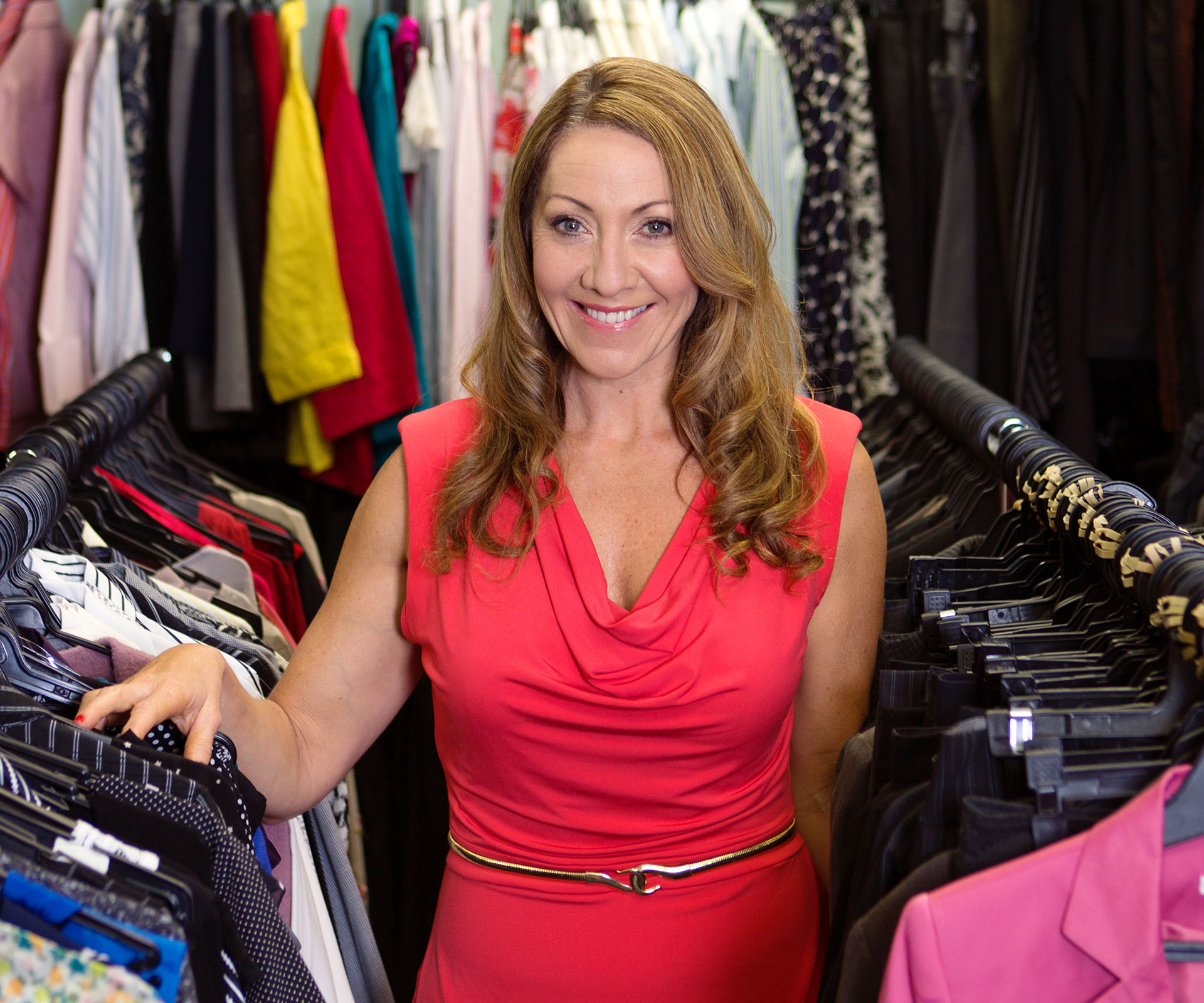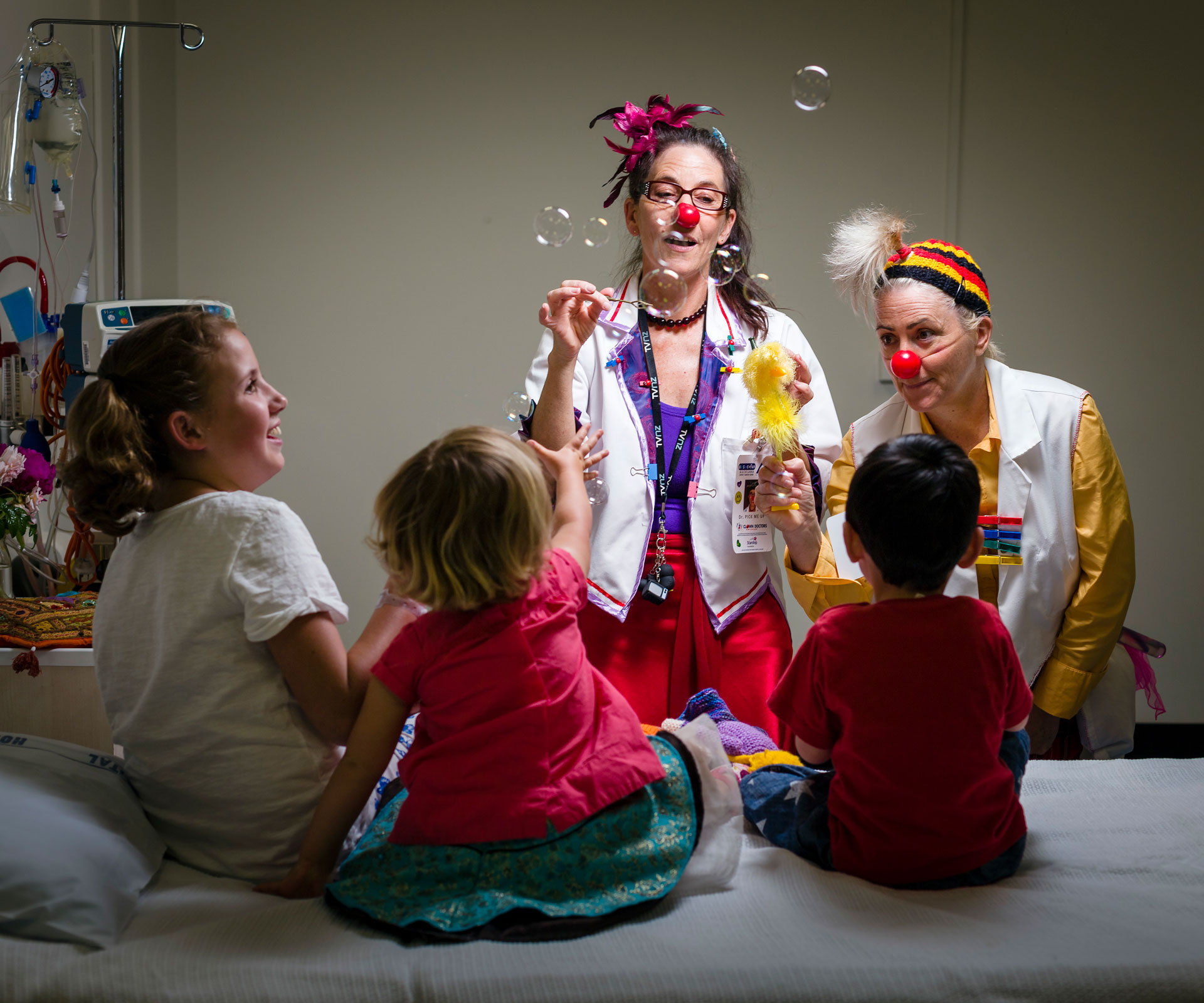When Jacqui Tuatara first walked through the doors at Dress for Success, she’d had 45 unsuccessful job interviews in a row. In her 40s, she was an experienced social worker with a diploma in counselling. But after just 14 months out of work to look after her unwell mother, employers suddenly demanded a degree to go with her experience.
She didn’t want to be at the charity boutique, she was only there under pressure from her social worker friends who had referred her. As a larger woman, she’d struggled to find beautiful clothes in her size all her life. She doubted it would be any different this time.
“I asked, ‘Do you have my size?’ and the assistant said, ‘we have a whole range, and it’s not just in black.’ That intrigued me,” she says.
She walked out with a chic black and white dress with a striped, fitted bodice and A-line skirt. It was paired with a black single-breasted jacket and a brand new Briarwood leather handbag – all donated to the charity, and gifted to Tuatara to help her look the part at her next job interview.
“I went there feeling a bit down. A bit dowdy. Being a bigger person it is difficult to find things that fit you. It proportioned my body frame well and I felt so confident and natural,” she says. “My self-esteem went from zero right up to 100%.” Four weeks later she had a job as a whanau worker with Family Start at the Papakura marae and she now has three qualifications to go with an impressive CV.
Prada and pride
For 15 years Dress for Success (DFS) has offered Kiwi women a new sense of confidence through a fresh set of clothes. Founded in New York in 1997 by Nancy Lublin with a $5000 inheritance from her great-grandfather, DFS now has more than 140 locations in 19 countries. The global charity’s objective is to give economic independence to disadvantaged women by providing professional attire, as well as a network of support and career development advice. New Zealand has seven affiliates.
Women who have a job interview, but no money to put them in the appropriate attire, are referred to DFS by more than 300 organisations. They include government agencies, recruitment companies, charities and training providers. At the boutique in Auckland, women meet with a stylist who will work with them for up to an hour.
The showroom has the worn leather scent of a second-hand store. But instead of faded jeans and tired dresses, Adrienne Winkelmann suits, Prada and Karen Walker line the racks. And they’re all gifted to clients. Kathryn Wilson personally donated shoes.
The stylists learn about the job that’s lined up, the person’s background and their sartorial style. In Auckland there are 110 volunteers, all trained by professional stylists. They guide the ‘client’ through what styles and colours suit their complexion and body shape. At the end of the consultation, clients leave with a complete outfit: clothing, shoes, makeup, jewellery, and handbag, completely free.
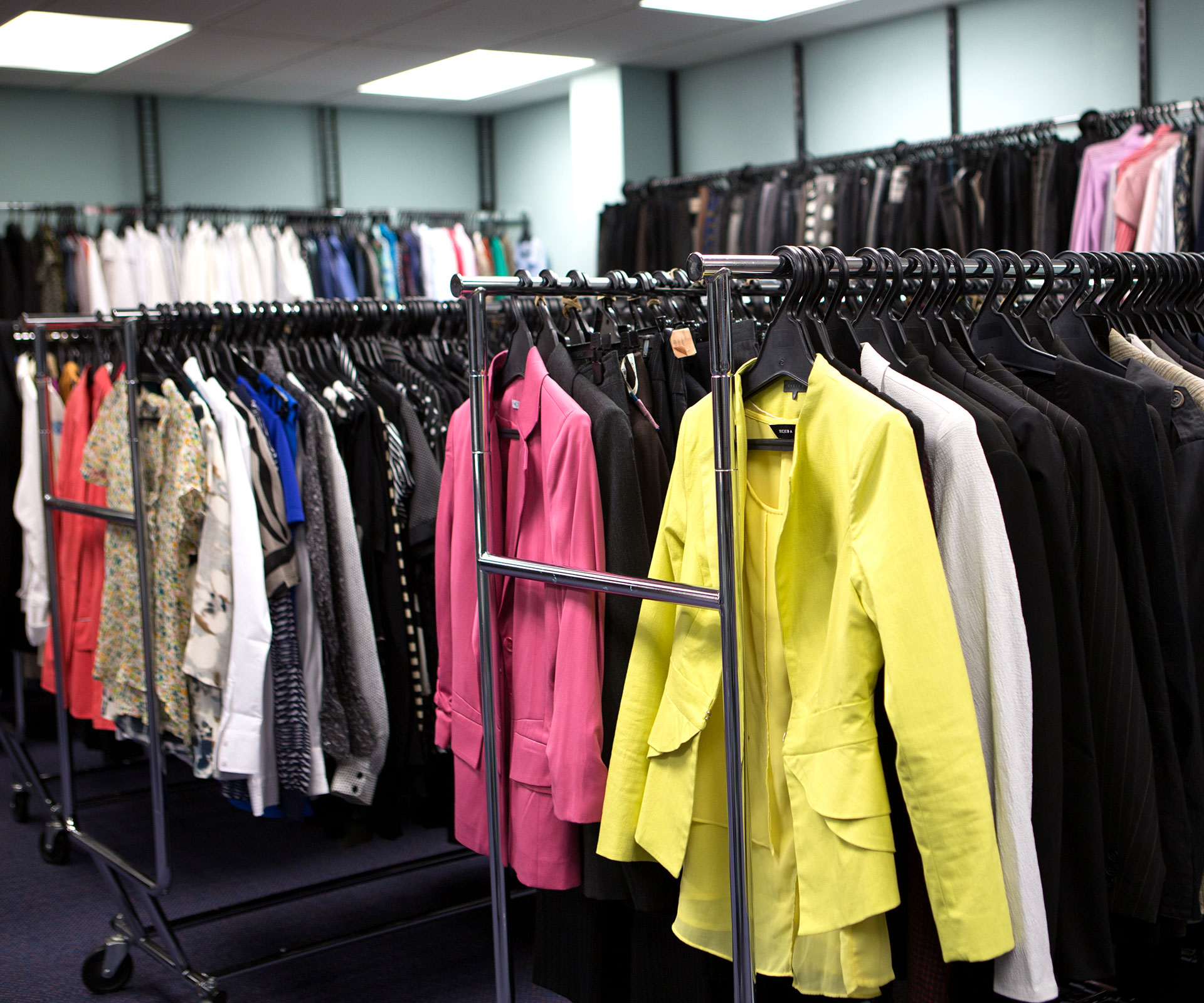
More than just clothes
And it’s more than a new outfit; the women are transformed inside and out. Volunteer stylist Maria Brown says many women who have been out of work for a long time try to hide, and they do that through their clothes. She arrived at DFS after years of hiding from her alcohol addiction. Free from booze, she wanted to start helping other women on their journey to success.
“People will wear the baggy clothes because they don’t want to be noticed. It’s a lot easier to have no attention drawn to you when you have no confidence any more,” says Brown.
She is passionate about fashion, and loved seeing the difference a change in appearance could have on a woman’s entire approach to life. “It’s about how a person can transform emotionally and physically to feeling beautiful, confident and proud from clothing. It’s amazing how one outfit can change someone so deeply,” she says.
She tries to make the women feel safe and the experience fun, so they are willing to step out of their clothing comfort zone. The dressing allows for a new perception of the woman to be put on display – to the world and in the mirror. Brown remembers convincing one woman who was certain she wouldn’t wear a skirt to just try it on. When she looked in the mirror, she broke down in tears.
“That for me, that one moment of tears, it was beautiful. She’d never ever seen herself for the beautiful woman she was. And for me it was just a skirt and a top. Something changed inside for her,” she says. “That joy when you turn a woman around and say ‘look at you’. Their body changes.”
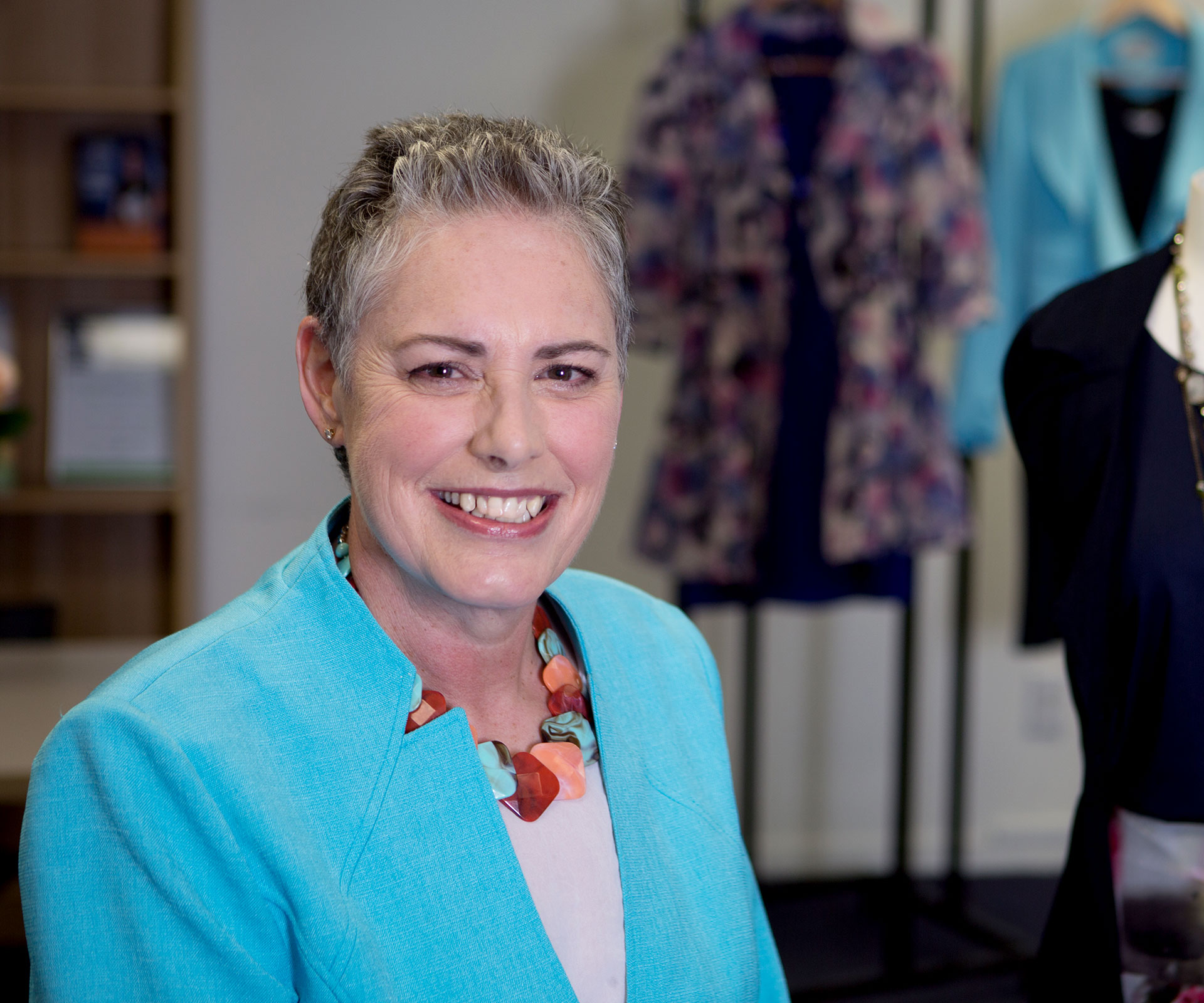
Client Lynda Pope.
Style S.O.S.
For many the service is vital. Across New Zealand DFS helps more than 3000 women a year; in Auckland they see between 1500 and 1800 women. In the past 15 years DFS has helped more than 30,000 Kiwi women find a job. If a client secures the job, they return for a second dressing and a new outfit for their first day at work. Between 72 and 74% of the women find work.
Lynda Pope was forced out of work last February, when her bad type two diabetes required surgery. She tried to stay in her sales role with a shipping firm, until she could no longer read her emails she was so unwell. After a gastric bypass, she lost 25kg, and when she began looking for work again this year, none of her corporate clothes fitted. Her first interview for a sales role with a international freight company was a success, and she was told the second interview would be with the CEO.
Corporate dress was suggested. Her clothes for the first interview were smart, but ill-fitting, outfits she’d used to hide weight that was no longer there. A year out of work she couldn’t afford new clothes. Dress for Success took her in for an emergency appointment on the Saturday morning before her Monday interview. She left with a new dark blue suit, top, shoes and a handbag. And then she got the job.
Pope is a proud, independent woman. When she first found herself unemployed, she didn’t want to take the benefits she was entitled to. She didn’t like being reliant on charity. But the staff at DFS made her feel welcome. She took confidence from the new outfit, knowing she looked the part.
“The consultants are so lovely. They want to do what they can to reach out and empower women and make them feel a lot better about themselves, and to ensure the opportunity you have for employment, you have the best shot at that,” says Pope.
When we meet DFS Auckland executive director Lani French in Auckland’s head office, she’s glamorous without being intimidating. She understands the power of her appearance, but she also knows what it’s like to struggle as a woman. A single mum of three, she had her first son when she was 16 and her second at 19. Her parents told her these were her mistakes, and hers alone to deal with. “From that point on there was a determination and my own kind of drive to overcome the odds,” she says.
Born in Hawaii, she moved to New Zealand at 21. A trained nurse, she worked night shifts to fund her way through extra education. At Massey University, studying social policy and public enterprise, she met a tutor who would become a mentor. She showed French there was always an opportunity to do more; for yourself, your family and especially others. “You meet people along the way who are going to give you that hand up and guide you in a particular direction. She instilled in me the value of education. That was probably the biggest hand up I had,” she says.
Unable to afford childcare, she would take her children to university with her. They’d sneak in the back of the lecture theatre and the boys would sit under her desk with their colouring books and lunch box. After nearly 10 years of accumulated study she has earned two bachelors and a master’s degree in public policy.
“That is the message I’d like to see the women who come here embrace. Sometimes when it is not ideal and it feels like life has got on top of us, just get ahead and make it,” says French.
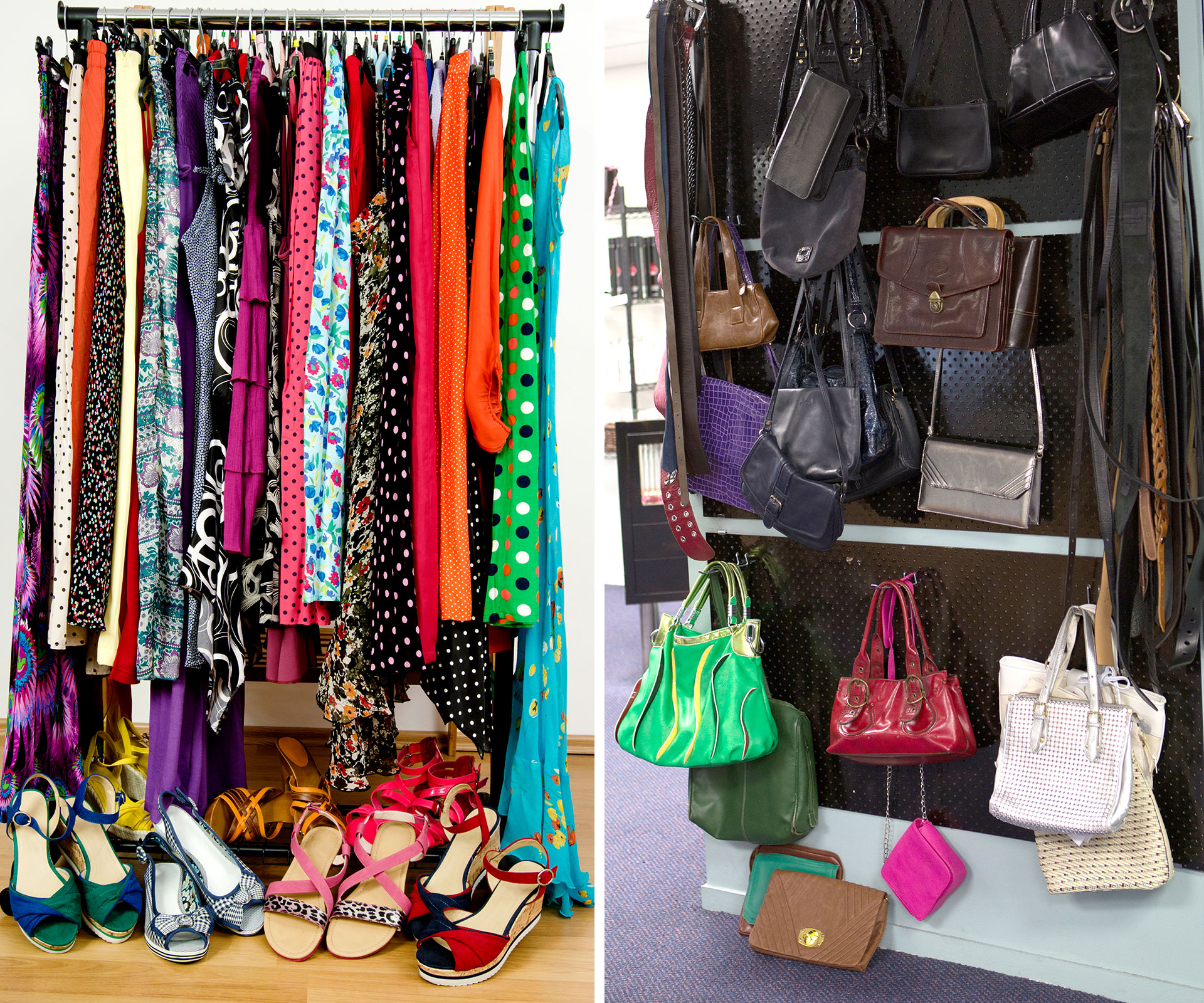
DFS has clothes in all shapes, styles, sizes and colours – many of them designer items – which the clients get to keep.
Going up a size
Already a donor of clothes, she took over as executive director at DFS in June last year. She wants to use her experience to grow the charity into a sustainable business.
“You hear so many stories of women who have done amazing things over their lives, and I wanted to be a part of that,” she says.
She works four days a week at DFS while still running her own strategic communications company, specialising in public affairs and government relations. While donated clothes pile up waiting to be sorted, cash flow is slow. And French wants to use her professional experience to develop the social enterprise of the charity and help build the economic sustainability of DFS.
“We’re in a competitive charity market in New Zealand. We’re not dealing with starving children or women being abused, for that reason it makes it a lot more difficult to compete. But it makes it easier to stand alone. That’s why I like what we do,” she says.
French wants to double the numbers of women they dress. She wants to start a mobile dressing bus to service communities around Auckland and she wants to work with corrections, providing training so women have the skills to move back into employment after being released from prison. DFS has started providing clothes to ex-convicts. To grow, the charity must increase its ability to earn money.
“It is quite easy to get clothing donated. But not so much dollar-wise. I would like to establish a sustainable funding scheme so we can do that. So we can grow,” French says.
Passing on skills
In Auckland, DFS is lucky enough to have the demographic of donors that sees a high level of designer wear cross the floor. They can have women walking out the door in a $3000 suit. But if it isn’t appropriate corporate attire then it is sold at the popular twice yearly designer sale.
French wants to turn the skills of DFS’s volunteers into a product. The charity runs corporate training for companies’ staff. They offer to teach women how to dress themselves within a certain budget, for their profession, so they look and feel good. She wants to expand their professional network programmes to offer lessons on interviewing and presentation skills. Even for women in work, French sees the effects that has on confidence and empowerment.
“This is our niche, we dress women for work. We have people who are quite skilled at dressing women for work. That is what we do every day, day in day out. If we can offer that for a fee [to corporates] that helps us keep the doors open and we’re also providing a service to women, which is what we are here for,” she says.
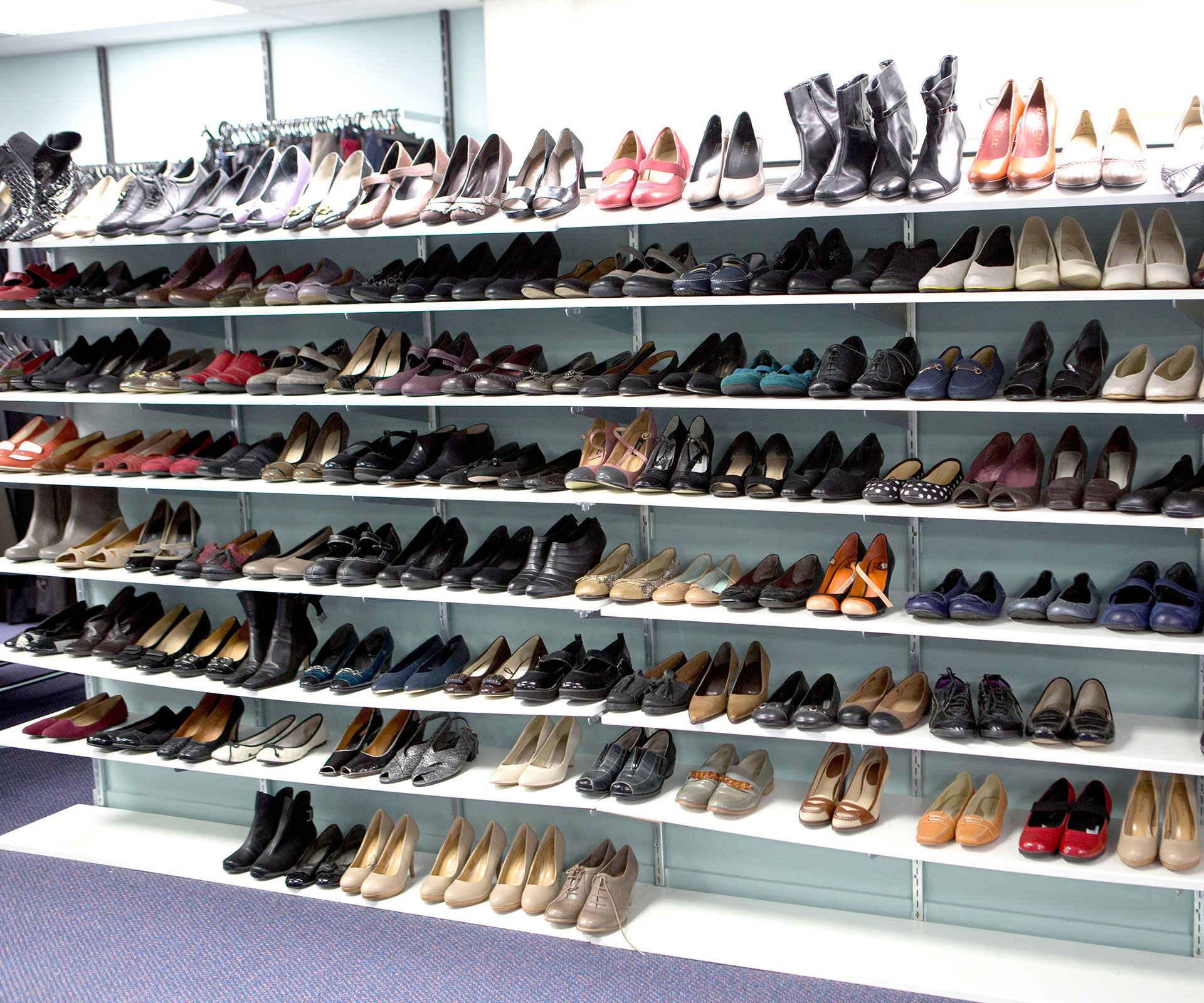
Crucial first moments
The power of first impressions is more than a myth, according to a study by the University of Sydney in collaboration with the local DFS. People deemed physically attractive are often given preferential treatment and good looks can translate to better education, better jobs, and higher pay. Women are subject to particular pressure as their looks become an increasingly important aspect of recruitment.
Not enough people are aware of the judgement made in the first moments of an interview, says Fiona Harland, founder of Auckland recruitment agency ERG, and DFS board member.
“They don’t place enough emphasis and weight on those first three or four seconds,” she says. “The impression you have of an individual is pretty much gained from the moment you make eye contact and shake their hand. So if their clothing isn’t representing the true person then you’re going to make a judgement and assumption on the individual before you’ve even broken the barrier and had a conversation.”
Whether it’s a job on a production line, or in an office, how you are dressed at the interview shows to employers you want the job, that you have shown up with intent to get the job, says Harland. Dress for Success helps women get the look right, and can provide the one-off piece, and the confidence to wear it, that lets a client stand out at an interview.
“A bit of colour, a bright pair of shoes, a bright jacket or a bit of jewellery, could be the difference in the interviewer remembering who you were and what made you stand out from the other people who came along for the interview,” says Harland.
Around 85% of women in New Zealand will take a break from work to raise children. And as the cost of living rises, more and more women are returning to their jobs after time off; over the past two decades female participation in the labour force rose from 54% to 63%. The charity is also seeing more young graduates who are struggling to find jobs as the baby boomers stay in the workforce longer.
“If you’ve been out of the workforce for so long as a woman, you lose your confidence, your ability, your strength from working, that comes from contributing, that comes from providing,” says French.
During our interview a tall young woman comes out of the dressing room in a sleek pantsuit that makes her friend gasp, her hand over her mouth. Her smile beams around the room, suddenly proud of her appearance. She can’t stop looking in the mirror. She arrived in a baggy grey tracksuit, her eyes cast down.
“Those are the women we get in here; they tend to have forgotten how to dress, they have forgotten how to feel good about the clothes they wear, they have forgotten how to dress with purpose and intent. That is what we are teaching them,” says French.
The next step is making a career out of the job. The women are offered the opportunity to join DFS’s professional women’s group, which focuses on job retention and career development. They network with peers and suddenly they have a support group of people going through the same thing. They learn new skills, give back to the community and start thinking about advancing in their career.
“That is the key difference in what we are providing. As much as it is about getting people back into the workforce and earning money, it is about making a life for them, empowering them to take control of their lives again,” says French.
That’s why DFS is so much more than a place for ladies who lunch to hand down last season’s outfit. The charity is creating real social change through fashion.
No more hiding
The dress gifted to Tuatara made her fall in love with fashion. She passed it on to another woman in need and has returned to DFS as a volunteer. At job interviews she used to hide behind black, baggy outfits. Now she encourages clients to step out of their comfort zone. “I encourage them to try colours,” she says. Tuatara is starting a blog for bigger women providing fashion tips and direction on how to find smart plus-size clothing. And she then plans on studying a master’s in fashion and social impact.
Dressed in a classic black leather jacket, she remembers the radiance of some size 26 women when their stylist found them an outfit that was their size and looked amazing. “They said they felt like they were young again, like there was hope. They felt like they were they professional,” she says. “That is social impact, in the space of one hour.”
Words by: Simon Day
Photos: Emily Chalk and Thinkstock
Hair and Makeup: Sharon Laurence-Anderson using M.A.C
